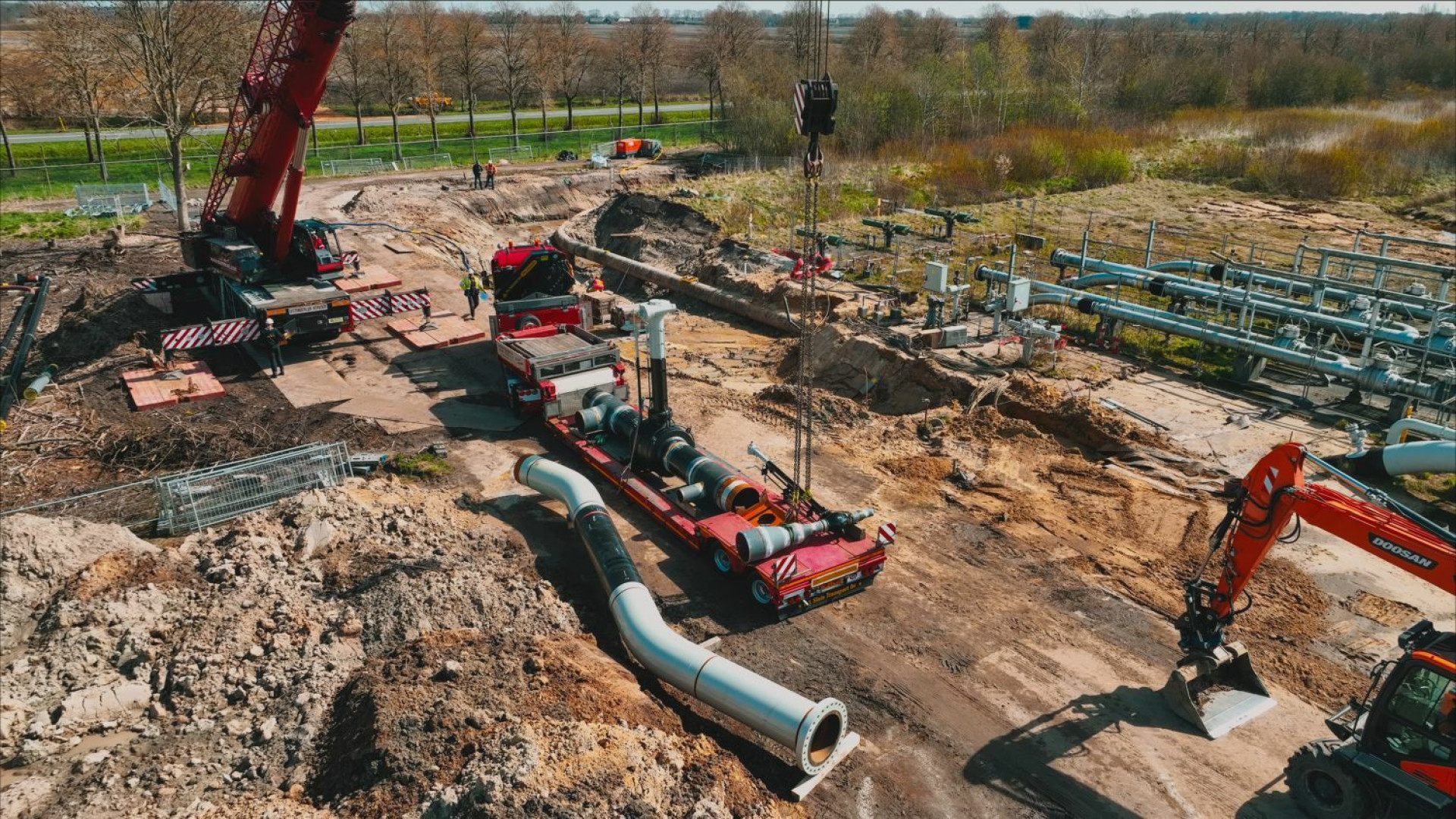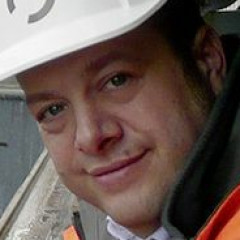Circularity
Circularity
The demand for products is increasing worldwide, while many raw materials used to make these products are becoming scarcer and/or more expensive. It is, therefore, becoming increasingly important to make smart, efficient use of products and raw materials.
Gasunie acts in accordance with the Dutch government’s goal of having a fully circular Dutch economy in 2050 and beyond. A circular economy is one in which, thanks to the use of as many sustainable, renewable raw materials as possible and the reuse of products and raw materials, waste is kept to a minimum. To reach that goal, the government has also formulated an interim goal: by 2030, the Netherlands will use 50% less primary raw materials like minerals and metals.
Circularity at Gasunie
Pipelines
Gasunie’s current core activity is the management and maintenance of a network comprising over 17,500 km of steel pipeline. So, it’s clear that the greatest contribution to a circular world we can make is by taking a different approach to steel. This is what we are doing:
Up to 2030, we will be converting some of our steel gas pipelines, which is becoming redundant due to falling demand for natural gas, into hydrogen pipelines (over 1,000 km in the Netherlands and more than 600 km in Germany). These pipelines will remain in use for many decades after repurposing. In the two decades after 2030, we will be able to repurpose many more gas pipelines as demand for natural gas declines further and demand for hydrogen increases.
Network components
When carrying out refurbishment or dismantling works at our sites in our natural gas network, valuable components can be harvested for reuse, either by Gasunie or outside parties. In 2023, we conducted tests on the reuse of high-pressure gas valves and redundant sections of pipeline. We are working on a standard process to assess harvested components for reuse and for putting them back into circulation.
Procurement
Gasunie purchases more than € 1 billion worth of goods and services annually, and our procurement of goods is becoming increasingly circular. In 2023, 22% of the products we purchased were circular by design. We want to increase that figure to 50% by 2030. We challenge our suppliers – in fair consultation – to show what they can do.
In the Netherlands, we have been recording the degree of circularity of a component in material passports for two years now. The material passport shows raw material composition of a product as well as the weight and percentage of each raw material that makes up the product. It also shows (as a percentage) the extent to which each raw material has been recycled and can be recycled at the end of the product’s life cycle. Our procurement departments in the Netherlands and Germany are jointly investigating whether and from when EU-wide standardised Environmental Product Declarations (EPDs) can be used as an alternative to national material passports.
Waste
From 2024, Gasunie’s offices in the Netherlands will switch to reusable cups (for coffee, etc.). Produced in the Netherlands, these cups made of polypropylene copolymer and free from harmful substances can be washed four hundred times. After a while, the cups are taken out of circulation and once more ground into granulate for reuse in new cups.
Head office
In 2024, our head office in Groningen, built in 1993, will be refurbished. Materials harvested from the offices will be reused as much as possible, and for materials that we cannot reuse ourselves, we will look for ways to give them a second life elsewhere. In addition, we want to work with materials that have a low environmental impact and that are sourced as locally as possible, ensuring that the parties in the value chain respect people, local communities and the environment.
Innovation-friendly, circular procurement
Working together on a more sustainable system in dialogue with our suppliers
For the third year running, in 2023 Gasunie was assessed as the most innovation-friendly buyer in the public sector (based on average score). This was established by Utrecht University, TenderNed and public procurement expertise centre PIANOo, who together studied our requests for tender published on the TenderNed public procurement platform in 2022. The jury was particularly pleased with our application of the competitive negotiated procedure, which involves companies being pre-selected and invited to submit an initial tender and negotiate with the contracting entity. This procedure allows more scope for innovation and better aligns demand with supply.
Dialogue with suppliers
We sometimes take this a step further, using competitive dialogue, a procedure Gasunie has been applying since 2023 for new tenders from engineering firms and contractors. After all, they know more than we do in certain areas, and we want to make better use of that knowledge and creativity and, this way, determine the best offer together. That also requires a different attitude on our part, that we increasingly position ourselves as an equal partner. With this approach, we are better able to search for sustainable and innovative solutions together with our suppliers.
Circular steel
One aspect of those sustainable, innovative solutions is circularity. Is the product made from recycled material? Can it be disassembled if it’s broken or no longer needed? This has a huge impact on carbon emissions, especially when it comes to metal. Producing steel from iron ore emits a tremendous amount of carbon dioxide. Using recycled metal cuts emissions by double-digit percentages. Our most important product, the pipes, always return to the steel production value chain at the end of their lifespan. Currently, we can rightfully call 60% of the steel that Gasunie procures circular*, a figure we plan to increase, even up to 100%, in the coming years.

We supply the pipelines for the hydrogen network in Rotterdam and for Porthos. To save around 95% of our emissions from steel production by the end of 2033, Salzgitter AG is working on a CO₂-reduced steel via the new hydrogen-based Salcos production route. It is a pleasure to work together with Gasunie on leading the European energy and steel market into a circular future.
* 60% circular means that the new product contains 20% scrap and that this product is 100% recyclable at the end of its useful life: (100+20)/2 = 60.

